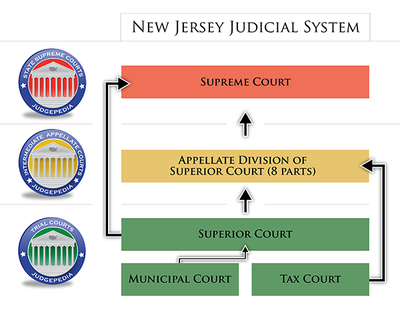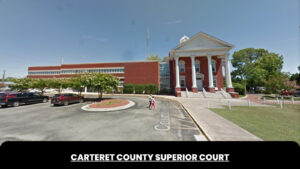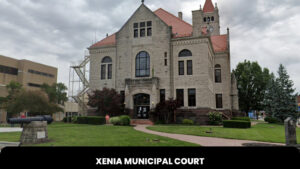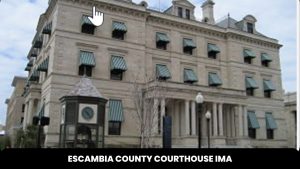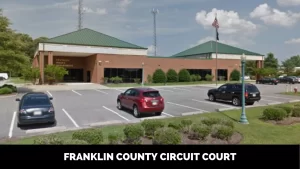New Jersey Courts Overview: Understanding the State Court System
When it comes to accessing court records in New Jersey, having a grasp of how the state court system works is essential. The New Jersey trial court system consists of four main types of courts: Superior Courts, Surrogate’s Courts, Municipal Courts, and Tax Court. Each of these courts has specific jurisdiction and handles different types of cases. In this article, we’ll take a closer look at each type of court and what kind of cases they deal with.
I. New Jersey Superior Courts
Superior Courts have broad jurisdiction over both civil and criminal cases. They typically handle cases beyond the jurisdiction of other courts, making them the highest trial courts in New Jersey. Within Superior Courts, there may be parts or divisions based on case type, such as civil, criminal, family, chancery, and probate.
Transfer of Cases: Superior Courts have the authority to transfer cases to The New Jersey Tax Court when taxation expertise is required. They may also grant Municipal Courts jurisdiction to handle motor vehicle cases resulting in death or bodily injury.
II. New Jersey Surrogate’s Courts
Surrogate’s Courts have jurisdiction over uncontested probate matters. These matters include admitting wills to probate, appointing personal representatives and administrators of estates, and appointing guardians of minors.
Role of Surrogates: Surrogates are elected county officials and judicial officers, serving as judges of Surrogate’s Court and Deputy Clerks of Superior Court, Chancery Division, Probate, and Family Parts. All probate matters and adoption papers must be filed in the Surrogate’s Office.
III. New Jersey Municipal Courts
Municipal Courts have jurisdiction over certain types of criminal cases, mostly of a less serious nature. Cases heard in Municipal Courts include felony preliminary hearings, violations of county or municipal ordinances, most violations of motor vehicle and traffic laws, most “disorderly person” offenses, and violations of fish, game, and boating laws.
Exception: Municipal Courts do not have jurisdiction over motor vehicle cases involving death or serious bodily injury, unless specific jurisdiction is granted by a Superior Court.
Consolidation: Many New Jersey municipalities have consolidated their courts into a single joint court or agreed to share their court services at a single location.
IV. New Jersey Tax Court
The New Jersey Tax Court has limited jurisdiction concerning tax matters involving State agencies, State officials, county boards of taxation, or county/municipal officials. The court has a Small Claims division for certain tax cases.
Transferred Cases: The Tax Court may also handle cases transferred from Superior Courts when expertise in taxation is necessary.
Statewide Jurisdiction: The Tax Court hears cases for the entire state, and while court sessions may occur in other cities, the Tax Court Management Office in Trenton handles all contacts and information.
nj criminal case search
If you’re looking for specific court cases in New Jersey, the chart below provides general information on the types of cases heard in each type of court:
| Case Type | Court Type |
|---|---|
| Civil | |
| – General Civil – Unlimited | Superior Courts |
| – General Civil – Limited | Superior Courts |
| – Small Claims | Superior Courts |
| – Civil Equity | Superior Courts |
| – Complex Commercial | Superior Courts |
| – Foreclosures and Liens | Superior Courts |
| – Real Estate Title and Boundary | Superior Courts |
| – Landlord / Tenant | Superior Courts |
| – Ordinance Violations | Surrogate’s Courts |
| – Protection, No Contact, and Restraining Orders | Superior Courts |
| – Administrative Agency Appeals | Superior Courts |
| Criminal | |
| – Felony | Superior Courts |
| – Felony Preliminary Hearings | Surrogate’s Courts |
| – Misdemeanors | Surrogate’s Courts |
| – Ordinance Violations | Municipal Courts |
| – Juvenile | Superior Courts |
| – Traffic and Infractions | Municipal Courts |
| Domestic Relations | |
| – Divorce | Superior Courts |
| – Child Custody and Visitation | Superior Courts |
| – Child Support | Superior Courts |
| – Paternity | Superior Courts |
| – Domestic Violence Protection Order | Superior Courts |
| Juvenile | |
| – Adoptions | Superior Courts |
| – Juvenile Delinquency | Superior Courts |
| – Child Abuse and Neglect | Superior Courts |
| – Termination of Parental Rights | Superior Courts |
| – Children in Need of Supervision | Superior Courts |
| Mental Health | |
| – Involuntary Commitments | Superior Courts |
| – Other Mental Health Cases | Superior Courts |
| Probate | |
| – Wills & Estates | Surrogate’s Courts |
| – Name Changes | Superior Courts |
| – Trusts | Surrogate’s Courts |
| – Guardianships and Conservatorships | Surrogate’s Courts |
Conclusion
Understanding the structure of the New Jersey state court system is crucial for anyone seeking court records or involved in legal matters. The Superior Courts handle a wide range of cases, while Surrogate’s Courts manage probate matters. Municipal Courts focus on certain criminal cases, and the Tax Court deals with tax-related issues. By knowing the roles and responsibilities of each court, individuals can navigate the legal system more effectively.
FAQs
- Can I find all court records online? While some court records may be accessible online, not all records are available for public viewing. Certain sensitive cases may be restricted from public access.
- Can I represent myself in court? Yes, you have the right to represent yourself in court, known as “pro se” representation. However, it is advisable to seek legal counsel for complex cases to ensure your rights are protected.
- How can I obtain a copy of a court decision? Court decisions are typically part of the public record and can be obtained by visiting the clerk’s office in the respective court or requesting them through their official website.
- What should I do if I receive a traffic citation in New Jersey? If you receive a traffic citation, you should carefully read the ticket, understand the charges against you, and consider seeking legal advice before deciding how to proceed.
- Are court proceedings open to the public? Yes, in most cases, court proceedings are open to the public unless sealed by court order due to sensitive or confidential information.

